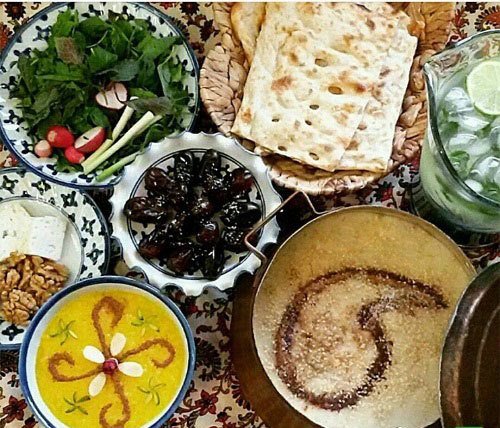Health tips for Ramadan
Part 4

The holy month of Ramadan contains the most blessed days and nights and is an opportunity for Muslims to practice abstinence and give up mundane desires for a short period of time.
On one hand, fasting is a way of developing self-control, gaining a better understanding of God’s gifts and greater compassion towards the deprived.
On the other hand, from the Iranian traditional medicine’s point of view it can also help the body to maintain health by getting rid of unwanted materials built up in the body over the past eleven months.
The meals of Suhur (eaten early in the morning before the dawn) and Iftar (eaten after breaking the fast at the sun set) are somehow ushering us to the best timing for eating during the day all year round which means to have an early breakfast and dine early at night right after the sunset.
Here are some eating tips to experience better fasting days.
Cut back on leek, onion, tarragon
Try to cut back on some vegetables such as leek, tarragon and onion especially for Suhur meal as consuming them might work up a thirst during the day. It is better to eat salads especially lettuce with cucumber for Suhur.
Not to eat much Ash-e reshteh, beef
Try to avoid consuming too much Ash-e reshteh (a type of thick soup featuring reshteh (thin noodles), vegetables, beans, chick pea, and lentil) or beef which are all considered as heavy meals.
Spray face with water, rose water
During the day you can spray your face with some water and rose water to quench the thirst.
Never breeak fast with cold water
Drinking cold water at the Iftar is the worst possible habit. As the stomach is pretty hot due to long hours of fasting drinking cold water can cause damage both to the stomach and the liver (which is in close proximity of the stomach as well). It is like pouring cool dater inside a hot glass container which could break or damage it
Additionally cold water can cause constipation, poor digestion, unquenchable thirst and anxiety.
Seyed Mahdi Mirghazanfari, MD, holds a PhD degree in medical physiology and is an Iranian-Islamic traditional medicine researcher. He is also an assistant professor in AJA University of Medical Sciences, Tehran.
MQ/MG
Leave a Comment